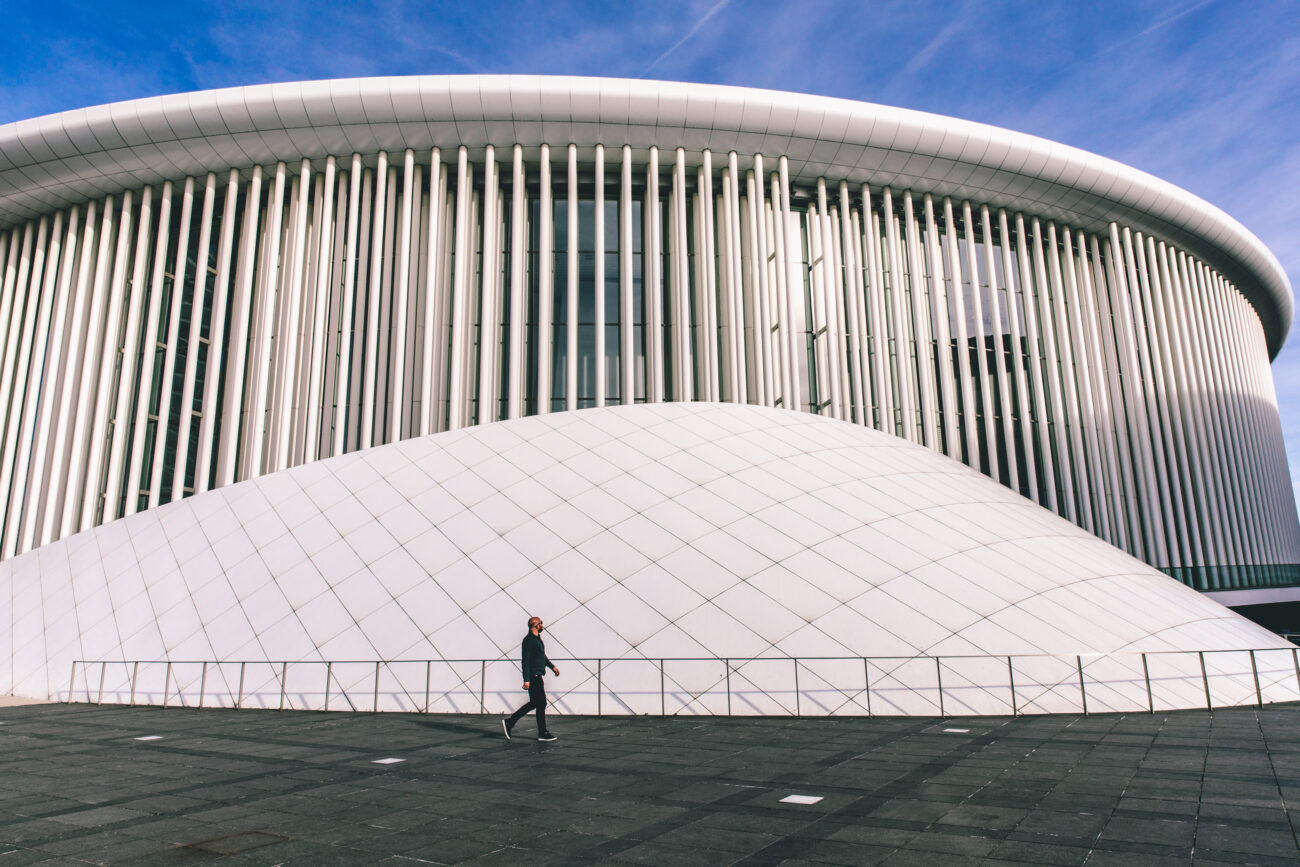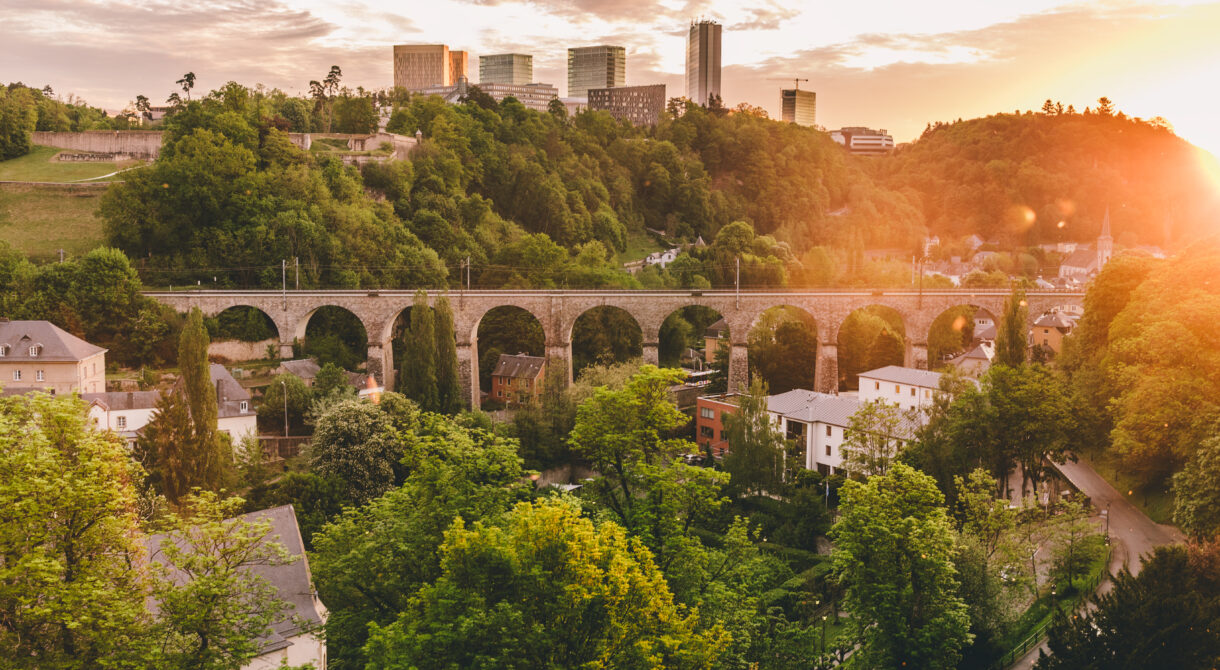Luxembourg now boasts a newly founded Convention Bureau aiming to punch above its weight where business meetings are concerned. The task is not hard considering the country’s vast offerings; founding member of the EU, safety, political and economic stability, easy accessibility by land and air and multiculturalism are but a few of the strong points associations can benefit from. Add the principles of sustainable development found in most governmental policies, and an ideal conference destination appears.
All about sustainability
François Lafont, CEO of Luxembourg Convention Bureau, emphasizes the consciousness of the bureau concerning green meetings and sustainability. “Even before the bureau got created there was a task group that was put in place between the actors of the MICE sector that worked on this topic. The idea is to involve our partners from the very beginning. One of the first decisions was to create 3 strategic goals and task groups for the future and for 2020: digitalization of the Luxembourg event industry, green meetings and future of meetings.”
To this end, the Bureau worked with a national association, Ecocenter, who had worked previously with the Bureau’s partners in order to create good interaction. Once proper communication channels are in place, then the plan is to move on to associations interested in organizing sustainable events in Luxembourg.
The Bureau’s goal is to register the destination in the GDS-Index, a program which aims to engage, inspire and enable destinations to become more sustainable places to host meetings. Lafont explains: “It is very important to have the same vision and to compare to other destinations and to be part of the international ranking about sustainability. The key point is that Luxembourg is not only a city, but will be registered as a country, and it will be the first time that a country will be benchmarked in the index.”
Practicing what it preaches, the Bureau’s first event was all about sustainability. François Lafont says: “For the first event and launch of the bureau, in Luxexpo the Box, it was important to have a green event. So, the Bureau worked together with the venue’s team to cater local food and recycle what was left over. A carpet was not placed on the floor, as these are thrown away after one event and not reused and only LED projectors were used. These are just a few of the actions taken.”
Proof of this commitment is the fact that Luxembourg became as of this March the first country in the world to make public transport free of charge nationwide. The initiative is trying to reduce traffic jams and help the environment by boosting the use of trams, buses and trains by residents, tourists and commuters, all while saving travel cost for residents. The systematic expansion of capacity in the national rail network, doubling the current number of Park&Ride car parking spaces, real-time passenger information, an increase in the number of charging points for electric cars across the country to 1,600 units by the end of 2020 and a cohesive network of cycle routes are being implemented to facilitate achievement of the objective.

Digital Urban Development for Future Generations
Progressive projects on sustainability do not stop there. Setting the pace in eco-technology products, cleaner and more efficient production and consumption systems, innovative materials and the rational use of natural resources, Luxembourg is home to many cleantech companies working in energy storage, waste management, water and eco-construction, strongly supported by government action plans. Newcomers may find a roof under the national incubator Technoport offering 16,000 sqm of facilities access to tools such as 3D printers, CNC milling machines and laser cutters.
Lafont notices the sustainability efforts around him: “In construction, Luxembourg is building energy positive houses, the first time that a country takes this decision. The government goal is, as of this year, that 11% of the country’s total energy consumption comes from renewable energies. To this end, Luxembourg opened the largest windmill park that will ‘feed’ 30,000 people with energy, which is a record for Luxembourg.”
Becoming ‘smart’ is priority. Smart cities with electromobility (800 public charging stations will be available all over the country in 2020) and autonomous driving (cross-border digital test site for autonomous and connected driving technologies) are already in place, as well as smart buildings with energy-efficiency AAA certification and environmentally friendly material. A smart grid, managed by Creos Luxembourg, will monitor and distribute energy produced at wind turbine or solar panel parks in the coming years and smart water management will offer efficient sustainable consumption.
Academia and research centres are also in the loop; the University of Luxembourg conducts high-level research in fields including photovoltaics, energy materials and advanced materials, whereas the Environmental Research and Innovation (ERIN) department of the Luxembourg Institute of Science and Technology (LIST) specializes in water security and safety, plant sciences and biotechnologies and e-science.
This article was written by Boardroom editor Vicky Koffa. The right to use it, in parts or in full, has to be granted by the Publisher.
Green Conscience
The sustainability cycle would not be complete without the country’s conference venues doing their best to raise the standards. MONDORF Domaine Thermal has been awarded with the Gold category of EcoLabel, promoting the eco-responsible tourism in Luxembourg. Bright examples include a new approach in catering with a buffet proposing a continuous service by portions instead of installing once the whole buffet can save food, while smoothies served during coffee breaks covered with a small knitted hat donate 0,20€ per bottle to the association “Petits Frères des Pauvres” which helps isolated elderly people.
Luxexpo The Box, the largest venue in Luxembourg, successfully organized a 35,000-people sustainable festival. Free entry on presentation of a public transportation ticket, no disposable plastic tableware or unnecessary gadgets, dimmed lights, recycling and local food offer from organic farming were some of the approaches and procedures implemented to make such a challenge work.
